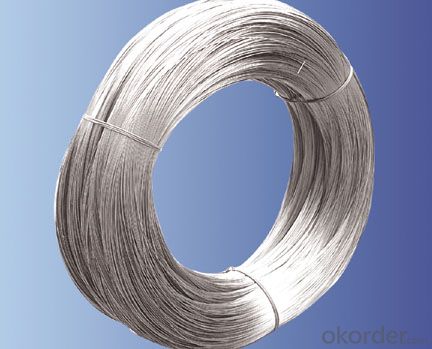Packaging & Delivery
| Packaging Details: | Coil or as customer's requirement. |
|---|---|
| Delivery Detail: | 7 Days after receiving the 30% advanced money |
OKorder Service Pledge
OKorder Financial Service
You Might Also Like
Model Number:8-20#
Surface Treatment:Galvanized
Galvanized Technique:Electro Galvanized
Type:Loop Tie Wire
Function:fencing
Wire Gauge:8-20#
Electro Gal.:Bright
| Packaging Details: | Coil or as customer's requirement. |
|---|---|
| Delivery Detail: | 7 Days after receiving the 30% advanced money |

Send your message to us
OKorder Service Pledge
OKorder Financial Service
Similar products
Hot products
Hot Searches
Related keywords